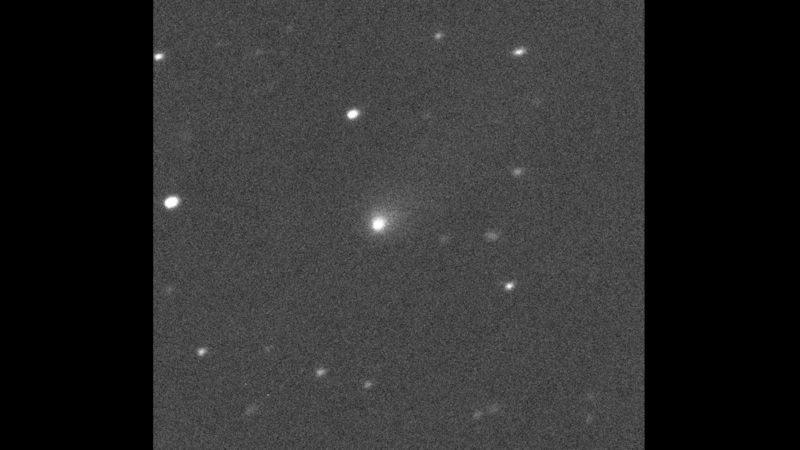Comet from another Solar System looks a lot like our own

Enlarge / Comet C/2019 Q4 (Borisov). Note the fuzzy appearance and faint tail. (credit: Canada-France-Hawaii Telescope)
Interactions among the small bodies of our Solar System are expected to hurl small objects out into interstellar space with some regularity, and the frequency was probably much higher early in the system's history. Given that the same thing almost certainly happens at exosolar systems-and we now know there are a lot of those-it's likely that the vast volume of interstellar space is lightly sprinkled with small objects, some of which may sporadically pass through our own Solar System. But up until very recently, we'd had no evidence of their existence.
That situation changed with the discovery of 'Oumuamua, a strange, cigar-shaped body that was the first confirmed exosolar visitor. But 'Oumuamua was so strange that it set some astronomers speculating that it could be an alien craft. Earlier this year, however, scientists spotted a second potential exosolar visitor, and this one looked a lot like a comet. Now, the first data on the object, 2I/Borisov, is in, and it's clearly exosolar in origin but looks so much like our existing comets that we might not have realized where it was from if we didn't have a good grip on its orbit.
The CrusherThe results come from quick work by a team of European researchers, who got a heads-up about 2I/Borisov's existence due to a software package they put in place. The code, called "Interstellar Crusher," is a Python software package that scans the Possible Comet Confirmation Page for new objects and attempts to calculate their orbits as they come in. As we described in our earlier coverage of 2I/Borisov, orbits that have a certain set of properties, called hyperbolic orbits, indicate that a body has come from outside our Solar System. These orbits indicate a body will only pass by the Sun once and originate from a source that's far outside the plane in which our planets orbit.
Read 6 remaining paragraphs | Comments